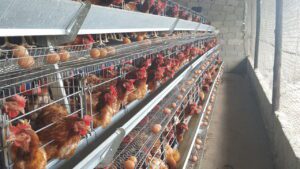
The Cabinet of Ministers has approved the attraction of concessional funds from the Japanese government in the amount of 13 billion yen (about $103.75 million at the current exchange rate), Prime Minister Denys Shmygal announced.
“Today, at a government meeting, we finalized agreements with the government of Japan to raise aid in the amount of 13 billion yen,” Shmygal said in his address on Friday evening.
According to him, these preferential funds will be used to finance the priority needs of the country and the Ukrainian people.

Indian and Japanese Prime Ministers Narendra Modi and Fumio Kishida on Saturday called for peaceful resolution of the situation in Ukraine during a meeting in Delhi, Japan Times has reported.
The leaders urged an “immediate cessation of violence,” and noted that the only way to resolve the conflict is through dialogue and diplomacy.
Kishida and Modi also stressed the importance of ensuring the security of nuclear facilities in Ukraine and overcoming the humanitarian crisis that has developed in Eastern Europe due to the arrival of Ukrainian refugees there, Japan Times said.
In addition, the leaders discussed the strengthening of economic ties between the countries and the situation in the Indo-Pacific region.

The Japanese Self-Defense Force has sent bullet-proof vests and other non-lethal supplies in response to a request from Ukraine, NHK TV channel has reported.
The KC-767 transport aircraft left the Komaki Air Base in Aichi Prefecture, central Japan, on Tuesday night for Poland, which shares a border with Ukraine. The items also include heavy winter clothes and emergency food supplies.
This is the first time the SDF has provided bullet-proof vests to another country.
According to the Ministry of Defense, Japan plans to deliver more equipment and supplies to Ukraine once they are ready, such as food, hygiene products, cameras, power generators, tents and winter clothing.
At a press conference on Tuesday, Chief Cabinet Secretary Hirokazu Matsuno said it was “critical” for Japan and its national security to support Ukraine.

Japan is urgently prepared to provide support to Ukraine with a loan of at least $100 million as a sign of support for it in the conditions of the buildup of Russian troops on the Ukrainian border, the Ministry of Foreign Affairs of Japan said following a telephone conversation between Japanese Prime Minister Fumio Kishida and Ukrainian President Volodymyr Zelensky.
“Prime Minister Kishida informed that Japan is urgently prepared to provide support with a loan of at least $100 million based on the request of the Ukrainian side, and President Zelensky expressed deep gratitude for this,” the Japanese Foreign Ministry said in a report on the website after the February 15 conversation.
Japan has been paying close attention to the move to strengthen Russian troops around the Ukrainian border. Japan has consistently supported Ukraine’s sovereignty and territorial integrity, the Ministry of Foreign Affairs of Japan said.
“The two leaders agreed to work together to ease tensions through diplomatic efforts,” the ministry said in the statement.

The Cabinet of Ministers of Ukraine approved the draft letter to the government of Japan on the project of construction of bridge across the Pivdenny Buh river in Mykolaiv. The relevant decision was made at a meeting on Wednesday. In the explanatory note it is specified that it is necessary for official confirmation of intention and interest of Ukraine in joint implementation of this construction with the government of Japan and the Japanese agency of international cooperation, and it will also specify the priority of the project for development of Mykolaiv region and Ukraine as a whole.
The text of the letter is not provided.
As it was reported, in January, 2020 the Japanese agency of the international cooperation JICA confirmed cooperation in construction of the bridge in Mykolaiv.
JICA presented the project of construction of the bridge in Mykolaiv in June, 2018.

Japan on August 2 lifted the ban on the export of Ukrainian poultry and eggs, introduced in December 2020 in connection with the spread of pathogenic avian influenza in Ukraine, according to a Wednesday posting on the website of the State Service for Food Safety and Consumer Protection.
“We are not only creating new export opportunities for Ukrainian companies, but also restoring access to foreign markets that were closed for one reason or another. Such closure decisions are usually made quickly, and it takes a long effort to convince partners to reopen the market. I am glad that we managed to convince the Japanese partners of the safety of Ukrainian products, and from now on Ukrainian companies can again export their products,” the authority said, citing Minister of Foreign Affairs of Ukraine Dmytro Kuleba.
The authority said that the Ukrainian side informed its Japanese partners in detail about the measures taken in Ukraine to combat outbreaks of avian influenza.